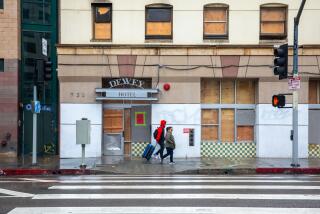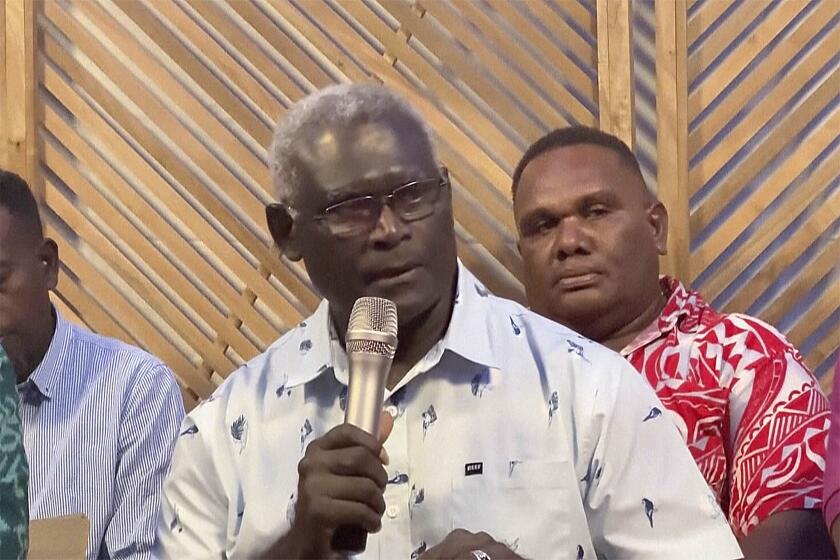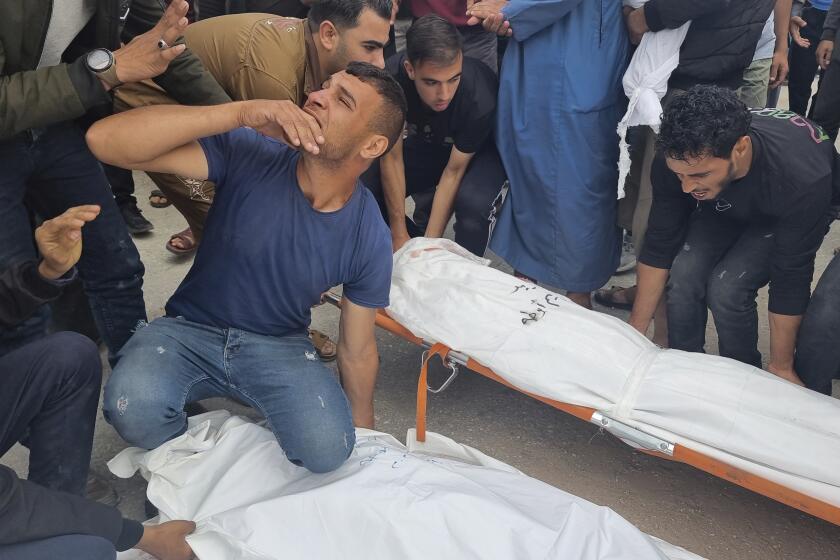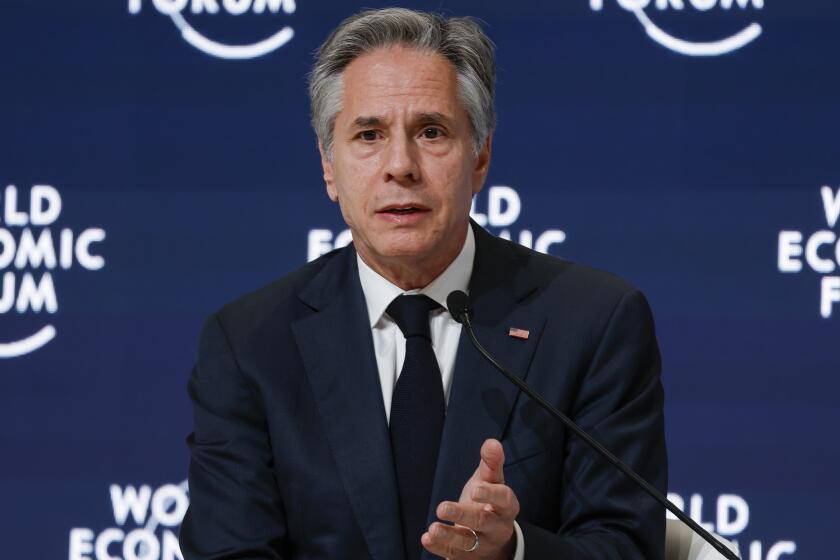Venezuela polarized over Chavez’s land policy
When Elbert Santiago, a poor messenger service employee and father of three, heard about a chance to trade up from his “hole” of a slum apartment to a place a short stroll from the presidential palace, he didn’t think twice.
After all, the price was the same for both places: practically nothing.
Santiago is a squatter, one of the army of poor who with the encouragement of leftist President Hugo Chavez have taken over an estimated 155 office, apartment and government buildings here in the Venezuelan capital.
Sure, he shares the place with 27 other families, and the seven-story office building is a shambles. At street level, the windows have been boarded up and graffitied over; inside, a dingy, narrow corridor leads to elevators that no longer work. But it’s home.
“It’s sad, but it’s necessary,” Santiago said as he repaired his motorcycle on the building’s sidewalk along busy Urdaneta Avenue. “There is a shortage of decent housing in the city.”
Across the nation, squatters have also taken over parking lots, storage yards, factories and 6.5 million acres of farmland.
“Land for the people, not for landowners, nor for fascists,” Chavez said during a recent broadcast of his “Alo Presidente” TV program.
For most of Chavez’s 12 years in office, there was no hard and fast legal basis for property invasions, although he made it known that his government would make no effort to dislodge people who occupied what he deemed “unproductive” farms or abandoned apartment buildings.
That legal basis materialized in late January when Chavez issued a decree authorizing the takeover of land and buildings to provide housing for thousands of people left homeless by devastating floods over the winter. The government then relocated them to entire floors of government buildings, including the Foreign Ministry, and forced several hotels, including the five-star Intercontinental in Caracas, to take in affected families.
A tenet of Chavez’s socialist “Bolivarian Revolution,” the policy is meant to redistribute the nation’s wealth and address what Chavez says are illegal accumulations by the wealthy of underused or idle land and buildings.
But it has deeply polarized the nation, with Chavez supporters and beneficiaries on one side and those who believe in private property rights on the other.
One such believer is Maria Paz Raga, a Caracas-based media consultant and mother of two who said she has lost two properties to squatters in six years, a one-acre plot that she inherited from her grandmother and a weekend beach condo she saved for 25 years to buy.
“My apartment on La Guaira beach was taken over by a band of criminals that now charges squatters a monthly fee so they can stay,” Raga said. “My little farm in Aragua state was taken along with several other parcels by a man who fenced them all in and now keeps them under an armed guard.”
The conflicts that arise from Chavez’s policy are evident in the Caracas suburb of El Hatillo. There, squatters have taken over part of a 50-acre parcel where Rafael Viso had planned to build a 66-house subdivision called Bosques Corralito.
Viso has had violent confrontations with squatters who he says are led by criminal bands that take over property and then broker them to others. (Encountered on a makeshift access path, several squatters declined to be interviewed.) Viso also says squatters smashed his car’s windows and fired a shotgun at him to frighten him into leaving.
“Most of my neighbors are afraid to confront them, but I’m not,” Viso said.
“If it comes to a gunfight, so be it,” said Viso, who added that he, his son and his three caretakers are armed to prevent more squatters from invading.
Viso and others blame local officials for not enforcing laws they say favor property owners. But El Hatillo Mayor Myriam do Nascimento said she is caught in the middle.
“On the one hand, my responsibility is to maintain public order; at the same time, we have a president that appears on TV and tells people to go out and occupy land,” Do Nascimento said. “We’re in a very difficult position.”
The January decree unleashed a wave of illegal takeovers that even Chavez can’t control, including a mass takeover of properties Jan. 22 in the municipality of Chacao, an affluent and mostly anti-Chavez district of greater Caracas.
Officials heard of a plan by dozens of Chavez-backed squatters to take over properties at 3 a.m. and were ready for them. Sirens sounded and 700 police emerged to defend properties. Despite efforts of Interior Minister Tarek El Aissami to dissuade them, by daybreak invaders had taken over 19 properties.
After negotiations, 13 groups of squatters left voluntarily, while six retained control of empty parcels, mainly parking lots, and vowed they would build houses there.
“We maintain permanent vigilance, especially at night when the squatters like to operate,” developer Viso said. “Chavez wants to deny us the right of private property, but he can’t. It’s too deeply rooted.”
Kraul is a special correspondent. Special correspondent Mery Mogollon contributed to this report.
More to Read
Start your day right
Sign up for Essential California for news, features and recommendations from the L.A. Times and beyond in your inbox six days a week.
You may occasionally receive promotional content from the Los Angeles Times.






